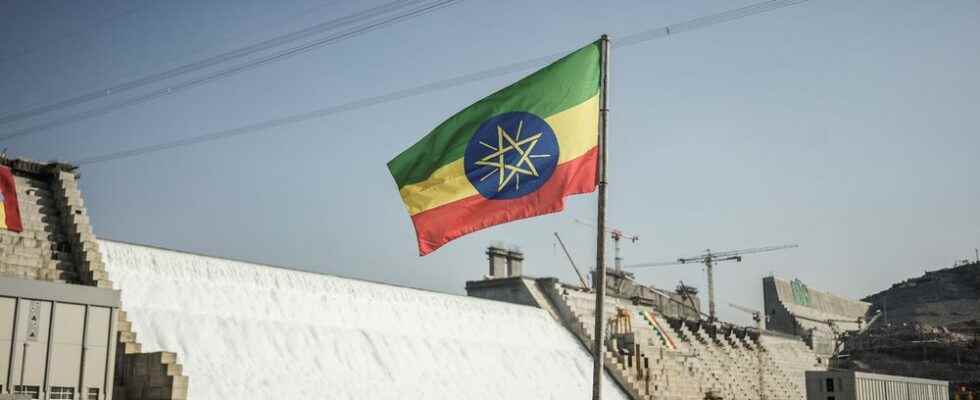For millennia, the rainy season in the Ethiopian highlands has heralded prosperity and fertility in Egypt. Between July and September, the farmers located downstream of the Blue Nile (taking its source in Ethiopia) wait for the flood of the river which deposits, with the descending water, the nourishing brown silt which gave its ancient name to the country of the Pharaohs: Kemet, “black earth”. But for the third consecutive summer, the beginning of these monsoons causes a fit of fever between the two countries, enemy brothers.
At the heart of the tensions, the great Ethiopian Renaissance dam (Gerd), whose third filling phase began in early July, as in 2020 and 2021, and without any consultation with its neighbors. This gigantic wall, 145 meters high and 1.8 kilometers long, should eventually produce 5,000 megawatts of electricity annually. But Egypt, and to a lesser extent Sudan, fear seeing the flow of the Nile decline in their territories. The first depends more than 90% on the river for its drinking water and irrigation. “No one will approach the waters of Egypt,” warned its president, Abdel Fattah al-Sissi, on June 14.
The Great Ethiopian Renaissance Dam (Gerd), in Guba, February 19, 2022
afp.com/Amanuel SILESHI
“We are witnessing a worrying acceleration of history, analyzes Franck Galland, associate researcher at the Foundation for Strategic Research. Ethiopia commissioned its first turbine in February and unilaterally continues to fill the dam because its inhabitants have need hydroelectricity, because it wants to quickly exploit this work at 3.5 billion dollars and above all because it is a factor of unity in a country divided ethnically and religiously, in the grip of a civil war.
War of influence on the Horn
At the other end of the river, Egypt, long queen of the Nile, asserts its ancestral right to these fertile waters. A 1959 agreement gave 75% of these waters to Cairo and 25% to Sudan. “Addis Ababa sees in this dam the end of a historic injustice”, underlines William Davison, researcher at the International Crisis Group. On social networks and on state television, Gerd is compared to the Battle of Adoua, when Ethiopian Emperor Menelik II repelled Italian troops in 1896.
Current Prime Minister Abiy Ahmed knows it: geography works in his favor since the source of the Nile is in Ethiopia. Egypt and Sudan are however demanding a tripartite agreement in order to impose on their neighbor a progressive filling period and guarantees on water management in the event of a severe drought.
Behind these technical disagreements is a battle for influence in this strategic region, open to the Red Sea, facing the Arabian Peninsula. “Ethiopia has become China’s subcontracting workshop and an area of arable land expansion for the Gulf States, continues Franck Galland. However, these two activities require water and electricity. .” At the head of the second most populous state in Africa (115 million), Abiy Ahmed wants to propel his country to the rank of water and industrial power.
Al-Sissi or the strategy of containment
Unsurprisingly, Egyptian President Abdel Fattah al-Sissi, also faced with galloping demography, is rowing in the opposite direction. His strategy? Stem his rival. Since 2021, the Marshal has signed military cooperation agreements with four East African countries, met his Djiboutian counterpart twice, and sent medical aid to Sudan and Somalia. This summer, he received the Saudi Crown Prince and the Emir of Qatar in Cairo, and obtained the support of American President Joe Biden, on July 16, for “an agreement on the filling and operation of the Gerd, without further delay”. Alongside this public activism, al-Sissi uses more underground methods. The support for the putschists who took power in Sudan in October 2021 is an example of this. Not to mention the suspicions hanging over Cairo, accused of helping the Tigrayan forces against which the Ethiopian central government has been fighting since 2020.
The cause is existential for the raïs, which has not ceased, in recent years, to beef up its military arsenal. “If al-Sissi failed to control at least part of the river, it would mean that he was unable to protect his people”, specifies Franck Galland. The water war is simmering on the Blue Nile.
